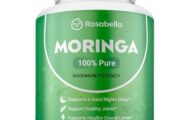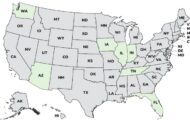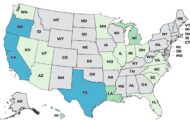The CDC has issued a HAN alert for high lead levels in WanaBana Fruit Puree. At least 22 children are sick with acute lead poisoning after allegedly consuming this product. The FDA, CDC, and state and local partners are investigating a “potential link” between children with high blood lead levels and eating this cinnamon apple puree and applesauce.

Patients live in these states: Alabama, Arkansas, Louisiana, Maryland, Missouri, New Mexico, New York, North Carolina, Ohio, Pennsylvania, South Carolina, Tennessee, Texas, and Washington, The patient age range is from one to three years. The children’s blood lead levels range from 4 to 29 micrograms per deciliter (µg/dL). Some of these children did exhibit symptoms of lead poisoning.
There is no safe level of lead consumption, and there is no safe level of lead in children’s blood. If testing shows capillary lead levels at or greater than 3.5 µg/dL, confirmatory testing of venous blood is needed to rule out contamination. Children who have eaten the recalled products should be tested.
WanaBana has recalled their cinnamon containing apple puree. Schnucks and Weis applesauce has also been recalled. The products are WanaBana apple cinnamon fruit puree pouches, Schnucks cinnamon applesauce pouches, and Weis cinnamon applesauce pouches.
Symptoms of acute lead toxicity include anemia, abdominal pain (also known as lead colic), constipation, headache, tremor, weakness, seizures, and encephalopathy. Clinicians should consider the possibility of illness due to lead exposure when children present with these symptoms. But many children may not have any obvious symptoms but still can have high blood lead levels. Cases must be reported to local health authorities.
Lead poisoning affects the central nervous system. Children are more susceptible to this type of poisoning because their nervous systems are still growing and developing. Even low levels of lead in the blood are associated with behavioral, cognitive, and learning defects. Some effects of childhood lead poisoning can continue into adulthood, with reduced IQ, stunted growth, impaired visual-motor coordination, high blood pressure, cardiovascular effects, impaired kidney function, gout, and adverse reproduction outcomes.
Children who have symptoms of lead poisoning may require hospitalization. Chelation therapy can help, and these patients need monitoring.
If you have the recalled WanaBana Fruit Puree, Schnucks, or Weis products in your home, do not feed them to your children. You can take them back to the store where you bought them, or ask your local government about safe disposal of these products.

If you or a family member have been sickened with a food poisoning infection, please contact our experienced attorneys for help with a possible lawsuit at 1-888-377-8900 or text us at 612-261-0856. Our firm represents clients in lawsuits against grocery stores, restaurants, and food processors.




